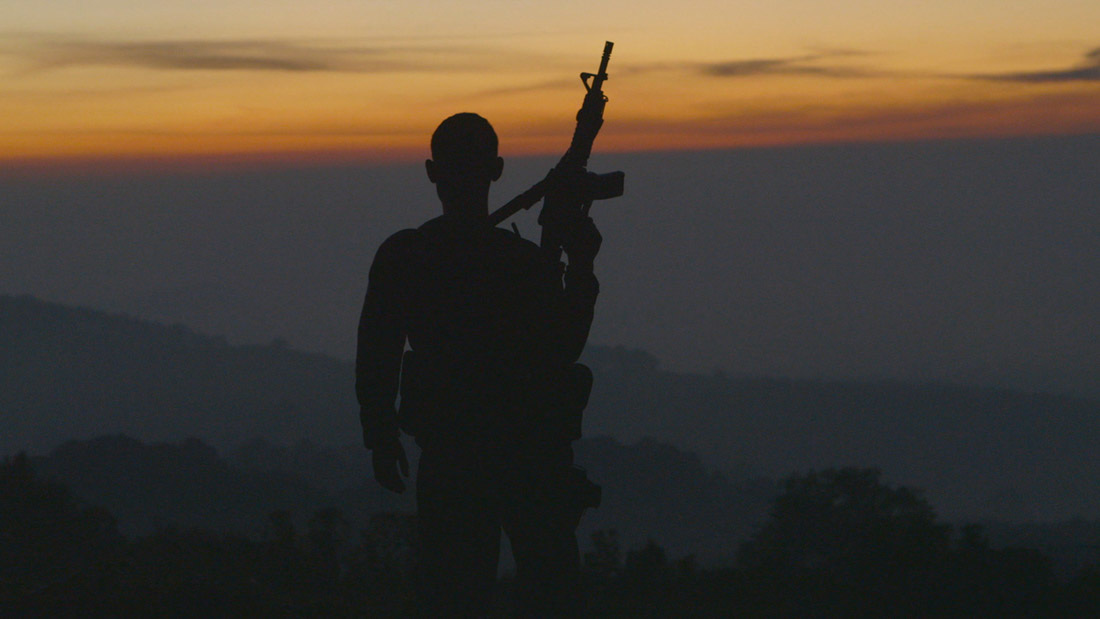In the very first scene, we meet some of the drug makers themselves. One of them admits that they know very well what they’re doing is wrong, but they have no choice; they’re poor and have no means of making a decent living. The Mexican state of Michoacán is being terrorized by the Knights Templar Drug Cartel, and the corrupt government is doing nothing to save its civilians from being tortured and killed. We learn the story of thirteen lime farmers (most of them members of the same family, and some of them children) who were maimed and killed because their employer could not afford to pay the money the cartel demanded of him.
Enter Jose Manuel Mireles, leader of the armed civilian group Autodefensas, and Tim “Nailer” Foley, leader of the Arizona Border Recon, which aims to prevent drug traffickers from crossing the U.S. border. While the two men seem very different, they share a common goal. They both distrust their government, and while they are far from perfect, they hold themselves to certain principles (for example, Mireles warns his men against being overeager to resort to violence and killing, for fear of becoming like their enemy).
I’m in awe of Matthew Heineman’s work on this film. I can’t remember another documentary I’ve seen in which the camera gets so close to the action--Heineman actually placed himself in danger in order to capture such intense moments as a shootout between two sides. His use of close-ups not only makes us feel as though we are a part of what’s happening, they help us to understand the characters as people, which is important in a film that could easily get caught up showing only violence instead of the people it affects.
Whether or not you know much about the Drug War, I encourage you to watch this excellent documentary. It has an almost dystopian feel to it--the government is entirely corrupted, and the civilians have no one to rely on but themselves. There were many times that I almost forgot this was a documentary, because it seems to be the stuff of fiction--but there is something about it that always served as a reality check: the good guys and bad guys aren’t always black and white, and sometimes, the good guys don’t win.
Grade: A

 RSS Feed
RSS Feed
